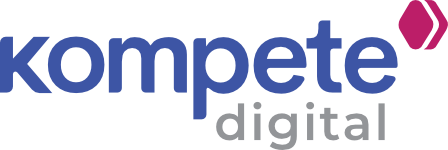Search engines change, user habits shift, and competition keeps sharpening.
But one truth in digital marketing remains constant: keywords are the backbone of online visibility. Whether you’re running a blog, an e-commerce store, or a service site, the phrases people type into Google determine how they find you.
Yet many small businesses hesitate when they hear the phrase “keyword research.” They assume expensive subscriptions are required or that it’s too advanced for them.
Fortunately, it’s neither costly nor complex anymore. In this guide, we explore the top free keyword research tools for 2025—platforms that anyone can use, no credit card required.
Each keyword research tool here has earned its spot thanks to reliable data, user-friendly insights, and staying power in an ever-changing SEO landscape.
Why Keyword Research Matters More in 2025
Before exploring the top tools, it’s worth asking: why are tools for keyword research more essential now than ever?
Search algorithms are more sophisticated than ever, blending intent, context, and location into every search. But the essence remains: content that matches real user queries earns visibility and trust.
Keyword research aligns your content with the actual search behavior of real users—not just isolated words or assumptions about their intent.
Take away the guesswork, and you build relevance. Build relevance, and you improve rankings.
Improve rankings, and suddenly organic traffic starts flowing steadily to your site. That’s the domino effect keyword research unlocks.
The Best Free Keyword Research Tools for 2025
Here’s the lineup—seven powerful platforms leading the way this year. Each deserves space in your toolkit, whether you’re a seasoned marketer or just setting out.
1. Google Keyword Planner
It might not feel sexy, but Google Keyword Planner is still the anchor. Primarily made for Google Ads, this free keyword research tool gives direct data from Google’s own database—search volumes, competition levels, and keyword variations.
Want to know how many people type “organic coffee near me” each month? Or whether “eco-friendly travel gear” is more competitive than it was six months ago? Keyword Planner tells you. It can also be used to discover trends for both content strategy and pay‑per‑click (PPC).
One challenge is you need a Google Ads account to access it, but creating one is free. Once in, you’ll quickly see why this remains the best free keyword research tool for many professionals: its accuracy stems straight from Google itself.
2. Google Trends
Where Keyword Planner gives volume, Google Trends shows movement. This tool answers the question: is an interest going up, stable, or fading?
By comparing terms side by side over time, Trends reveals seasonality. For example, “tax help” surges every March and April in the U.S., while “summer dresses” predictably climbs beginning in late spring.
What makes it valuable in 2025 is its geographic breakdown. If you’re a regional business, understanding which phrases spike in your specific state or city helps pinpoint opportunity.
In short: this isn’t just a keyword research tool , it’s a directional compass for timing and demand.
3. Ubersuggest
Neil Patel’s Ubersuggest remains a dependable option for smaller teams. With its beginner tier, you can unlock limited daily searches yet still gain a treasure trove: keyword suggestions, search volumes, SEO difficulty, and even content idea prompts.
Trying to figure out whether writing about “budget meal plans” is worth the effort? Ubersuggest shows not only the numbers but competitive scores to gauge difficulty. This practical side makes it especially useful if you’re mixing content strategy with SEO.
While power users often outgrow its free plan, for starters it represents one of the more accessible free keyword research tools available.
4. AnswerThePublic
Content marketers adore this one—and for good reason. AnswerThePublic visualizes search queries into branching diagrams full of questions, comparisons, and prepositions.
Type “home office setup,” and suddenly you’re staring at dozens of common searches like “home office setup on a budget,” “what home office setup is best for productivity,” or “home office setup vs coworking space.”
What makes it the best free keyword research tool for ideation is its ability to dig into intent. People ask questions before making decisions.
By answering those questions through your content, you meet visitors where they are mentally. AnswerThePublic is less about volume, more about inspiration, and in 2025, high-quality, intent-matching content is what search engines reward most consistently.
Although the platform is free to use, the daily search count is limited, and key metrics like search volume and cost-per-click (CPC) estimates require upgrading to a paid plan.
5. Keyword Surfer
Sometimes you don’t want to hop between platforms. Enter Keyword Surfer , a free Chrome extension. Instead of visiting a dashboard, it overlays useful metrics right in the Google search results page.
Search “online yoga classes” on Chrome, and you’ll see estimated search volume, CPC, and related keyword suggestions on the sidebar. It’s fast, lightweight, and convenient for quick scans.
This doesn’t replace heavier-duty platforms that offer deep SEO audits and insights, but as an everyday companion it’s fantastic. For many beginners, Keyword Surfer turns Google itself into a free keyword explorer, letting them brainstorm ideas while naturally browsing.
6. Ahrefs Free Keyword Generator
Ahrefs is known for its premium suite, but their Free Keyword Generator holds serious weight on its own. Type in a topic, and you’ll get up to 150 ideas with search volumes and keyword difficulty scores.
Better yet, it pulls data not only from Google but also Bing, YouTube, and Amazon. That makes it more versatile than most. If you’re a YouTuber, for instance, tailoring videos around top-searched keywords on YouTube instantly increases your visibility odds.
In terms of precision, this is arguably the most data-rich true free keyword research tool out there in 2025.
7. Keyword Tool Dominator
E-commerce sellers? This one’s for you. Keyword Tool Dominator specializes in pulling long-tail queries from marketplaces like Amazon, Etsy, eBay, and Google.
Say you’re listing handmade candles. Type it in, and Keyword Tool Dominator spits out long-tail searches real shoppers use, like “soy lavender candle gift set” or “eco-friendly beeswax candles bulk.”
Long-tail terms may bring smaller search numbers but deliver sharper intent.
Its premium plans offer search caps, exports, keyword scoring, and optimization tools.
For niche products in 2025, this tool remains unbeatable since it gets insight from platforms where purchases happen daily. It’s not just finding searchers—it’s uncovering buyers.
How to Choose the Best Free Keyword Research Tool for Your Needs
With so many options, the natural question arises: which is “best” for you? Truth is, there’s no single right answer. The best free keyword research tool depends on your goals:
- For planning paid ads: Google Keyword Planner.It offers search volume, keyword forecasts, CPC, and data directly from Google.
- For spotting trends: Google Trends. Reveals search momentum, seasonality, regional spikes, excellent for timing you content and campaigns
- For ease and simplicity: Keyword Surfer. It is ideal for quick insights.
- For content ideation: AnswerThePublic. Helps visualize questions and choose from recursive, clustered suggestions to uncover real user intent for content planning.
- For in-depth analysis: Ahrefs Free Keyword Generator. Delivers 100+ keyword ideas, SERP analysis, and multi‑platform suggestions to craft well‑informed, intent-driven content strategies.
- For e-commerce niches: Keyword Tool Dominator. Ideal for product listing optimization.
- For a mix of all: Ubersuggest offers balanced data.
No tool stands alone. Most marketers combine two or three, ensuring they capture both volume and intent, both data and context.
Tips for Using Free Tools Effectively
Having access isn’t enough. Here are a few reminders for leveraging these tools for keyword research in smarter ways:
- Cross-check Data. Volumes differ between platforms. Validate by comparing at least two sources.
- Think Intent, Not Just Numbers. Two hundred monthly searches with commercial intent often beat 2,000 with unclear purpose. Align keywords with the actual user motivation—informational, navigational, commercial, or transactional—for better conversion rates.
- Segment by Location. Use tools like Trends to map your keyword strategy to your exact audience based on geographic spikes, seasonality, and audience-specific patterns. This helps you tailor content by location and context.
- Look Beyond Obvious Terms. Long-tail variations drive smaller but highly targeted traffic that converts better. They’re less competitive and more aligned with user intent in niche or regional contexts.
- Combine Free Tools with Planning. Write down every keyword opportunity, then assign them across your content calendar. This can help you build authority-rich content that aligns with how search engines evaluate topical relevance.
Final Word
Keyword research is not about drowning in tools—it’s about choosing the ones that clarify opportunity for your exact goals. The landscape of 2025 offers generous free options, each excelling in different areas.
So, remember to:
- Use Google Keyword Planner for precise search volumes.
- Consult Google Trends to see demand shifting in real-time.
- Explore ideas with AnswerThePublic and Ubersuggest
- Rely on Keyword Surfer for quick checks as you browse.
- Turn to Ahrefs Free Keyword Generator for versatile, data-backed suggestions.
- And if you’re selling products? Keyword Tool Dominator should be on the front line.
Every free keyword research tool on this list removes the excuse of “I can’t afford SEO data.” With the right mix, any marketer—big or small—can build campaigns grounded in what people are genuinely searching.
In truth, mastering keywords isn’t about paying the most. It’s about listening to the data already available.
Start using these 2025-ready platforms, and you’re halfway to building content and campaigns that resonate, rank, and, most importantly, convert.





